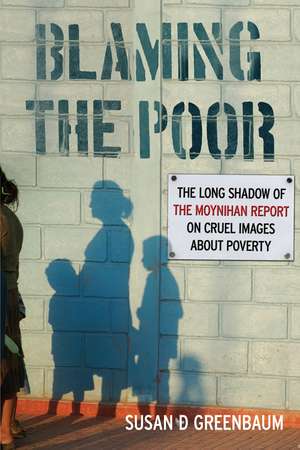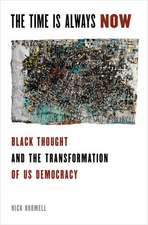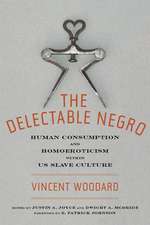Blaming the Poor: The Long Shadow of the Moynihan Report on Cruel Images about Poverty
Autor Susan D. Greenbaumen Limba Engleză Paperback – iul 2015
In 1965, the late Senator Daniel Patrick Moynihan—then a high-ranking official in the Department of Labor—sparked a firestorm when he released his report “The Negro Family,” which came to be regarded by both supporters and detractors as an indictment of African American culture. Blaming the Poor examines the regrettably durable impact of the Moynihan Report for race relations and social policy in America, challenging the humiliating image the report cast on poor black families and its misleading explanation of the causes of poverty.
A leading authority on poverty and racism in the United States, Susan D. Greenbaum dismantles Moynihan’s main thesis—that the so called matriarchal structure of the African American family “feminized” black men, making them inadequate workers and absent fathers, and resulting in what he called a tangle of pathology that led to a host of ills, from teen pregnancy to adult crime. Drawing on extensive scholarship, Greenbaum highlights the flaws in Moynihan’s analysis. She reveals how his questionable ideas have been used to redirect blame for substandard schools, low wages, and the scarcity of jobs away from the societal forces that cause these problems, while simultaneously reinforcing stereotypes about African Americans. Greenbaum also critiques current policy issues that are directly affected by the tangle of pathology mindset—the demonization and destruction of public housing; the criminalization of black youth; and the continued humiliation of the poor by entrepreneurs who become rich consulting to teachers, non-profits, and social service personnel.
A half century later, Moynihan’s thesis remains for many a convenient justification for punitive measures and stingy indifference to the poor. Blaming the Poor debunks this infamous thesis, proposing instead more productive and humane policies to address the enormous problems facing us today.
| Toate formatele și edițiile | Preț | Express |
|---|---|---|
| Paperback (1) | 278.15 lei 6-8 săpt. | |
| Rutgers University Press – iul 2015 | 278.15 lei 6-8 săpt. | |
| Hardback (1) | 824.73 lei 6-8 săpt. | |
| Rutgers University Press – iul 2015 | 824.73 lei 6-8 săpt. |
Preț: 278.15 lei
Nou
Puncte Express: 417
Preț estimativ în valută:
53.23€ • 56.91$ • 44.38£
53.23€ • 56.91$ • 44.38£
Carte tipărită la comandă
Livrare economică 17 aprilie-01 mai
Preluare comenzi: 021 569.72.76
Specificații
ISBN-13: 9780813574134
ISBN-10: 0813574137
Pagini: 190
Dimensiuni: 152 x 229 x 13 mm
Greutate: 0.29 kg
Ediția:None
Editura: Rutgers University Press
Colecția Rutgers University Press
ISBN-10: 0813574137
Pagini: 190
Dimensiuni: 152 x 229 x 13 mm
Greutate: 0.29 kg
Ediția:None
Editura: Rutgers University Press
Colecția Rutgers University Press
Notă biografică
SUSAN D. GREENBAUM is a professor emerita of anthropology at the University of South Florida. Her book More Than Black: Afro-Cubans in Tampa won several awards and was selected as a Choice Outstanding Academic Book of 2003.
Cuprins
Preface
Chapter 1. Introduction
Chapter 2. Research and Politics: The Culture of Poverty Knowledge
Chapter 3. Kinship and Family Structure: Ethnocentric Myopia
Chapter 4. There Goes the Neighborhood: Deconcentration and Destruction of Public Housing
Chapter 5. Crime, Criminals and Tangles of Pathology
Chapter 6. Commercializing the Culture of Poverty
Chapter 7. Ending Poverty as We Know It: And Other Apparently Unreachable Goals
Notes
Index
Notes
Index
Recenzii
"An intimate portrayal of social science researchers' and policy makers' roles in shaping perceptions of the poor in the US … By examining the ways in which the tangle of pathology thinking has shaped housing, criminal justice, and antipoverty programs, Greenbaum highlights that the real winners of these programs are the non-poor. She argues that dismantling racialized stereotypes of the poor and holding open discussions with those who experience poverty will lead to more sustainable solutions to poverty ... Essential. All academic levels/libraries."
"Blaming the Poor is a thorough examination of the anti-poverty trend that began with 'the thesis that broken families cause poverty' and continues fifty years later to demonize poor African Americans."
"Wonderfully engaging ... Susan Greenbaum has written an important book, which deserves a wide audience among both practitioners and academics."
"[Blaming the Poor] is an exceptional challenge to common conservative opinions of poverty… Politicians and policymakers of all backgrounds and political stances should read this book."
"Greenbaum's text offers an accessible review of approaches to poverty in the second half of the twentieth century that can help educate students of all kinds about how we ended up in the mess we find ourselves in today."
"A fascinating synthesis of existing scholarship on poverty and policy that draws on Greenbaum's fieldwork to extend the existing literature in helpful and provocative ways."
"Greenbaum's powerful and important book provides valuable and little-known context for the Moynihan Report. She traces the ideas in that report as they were adopted and challenged over time."
"I applaud Susan Greenbaum's timely book, with its sober reasoning, scrupulous scholarship, theoretical acumen, lucid prose, and penetrating and spirited critique of mainstream perspectives on poverty."
Descriere
A leading authority on poverty and racism, Susan D. Greenbaum dismantles the main thesis of the Moynihan Report—that the so called matriarchal structure of the African American family “feminized black men,” resulting in a “tangle of pathology” that led to a host of ills, from teen pregnancy to adult crime. Drawing on extensive scholarship, Greenbaum debunks this infamous thesis while outlining more productive and humane policies to address the problems facing America today.















